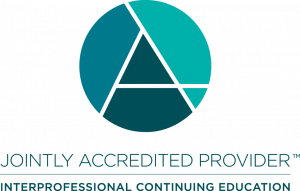Home / Training Courses
Education & Training
Search for Educational Activities:

Please select the option that best aligns with your profession.

Please select the option that best aligns with your topic of interest.
If a subtopic exists for your primary topic, it will automatically display below.

Please select the option that best aligns with your preferred format of training.
Continue a Training
If you need to access a course in progress, please go directly to our education site.
PCSS-MOUD has the resources and training you need
to meet the needs of your patients.
PCSS-MOUD is a national training and clinical mentoring project developed in response to the opioid use disorder crisis. Made up of a coalition and led by the American Academy of Addiction Psychiatry (AAAP), PCSS-MOUD’s education and training resources are developed for healthcare providers and professionals. The overarching goal of PCSS-MOUD is to provide the most effective evidence-based clinical practices in the prevention of OUD through proper opioid prescribing practices, identifying patients with OUD, and the treatment of opioid use disorder.

In 2019, American Academy of Addiction Psychiatry was approved as a provider of Joint Accreditation for Interprofessional Continuing Education™. Joint Accreditation is the leading model of interprofessional collaboration that helps improve healthcare through continuing education for the team, by the team. Joint Accreditation offers us the opportunity to be simultaneously accredited to provide medicine, pharmacy and nursing continuing education activities through a single, unified application process, fee structure and set of accreditation standards, from these three global leaders in the field of accreditation: Accreditation Council for Continuing Medical Education (ACCME), Accreditation Council for Pharmacy Education (ACPE) and American Nurses Credentialing Center (ANCC). By offering three accreditations in one review process, Joint Accreditation promotes interprofessional continuing education activities specifically designed to improve interprofessional collaborative practice in health care delivery. Learn more about Joint Accreditation.
Educational Activities by Format
Clinical Guidance
“Clinical practice guidelines are systematically developed statements to assist practitioner and patient decisions about appropriate health care for specific clinical circumstances.”(Institute of Medicine, 1990)
Resources
These resources and sample forms for treating OUD and chronic pain were developed for health professionals, patients, family members and significant others of patients and the general community to learn more about the evidence-based treatment of opioid use disorders and the treatment of chronic pain.
Note: Inclusion on the list does not indicate PCSS-MOUD, AAAP, or partner organizations endorse any of the resources listed and exclusion in no way implies other resources are not available or valuable.


